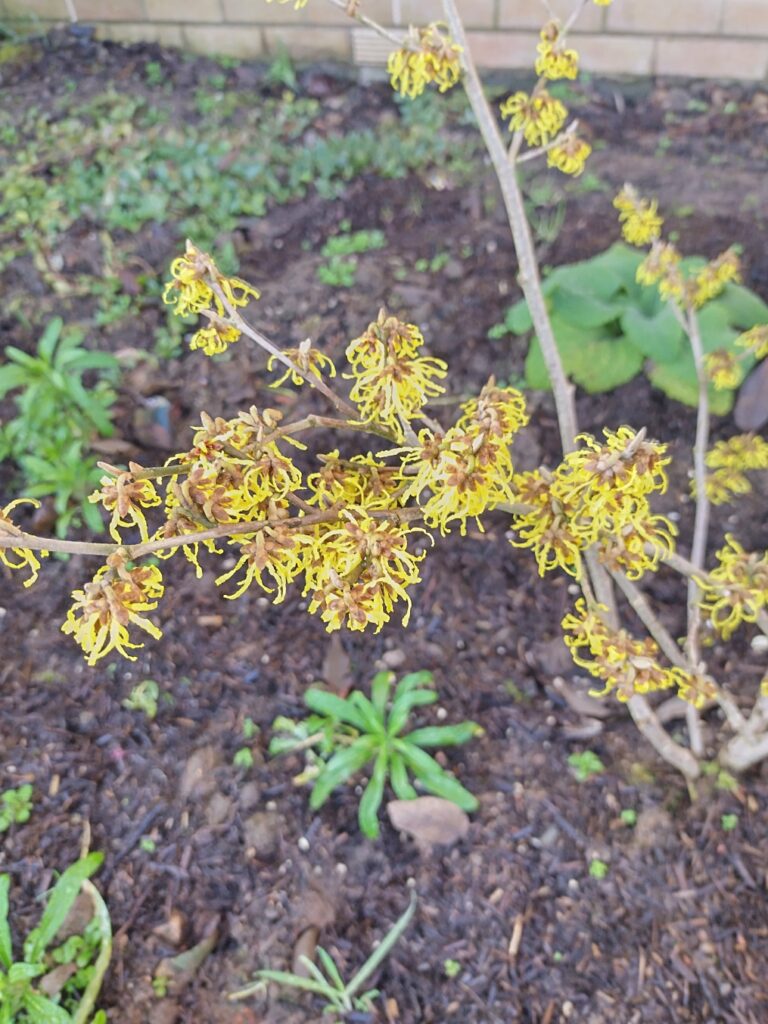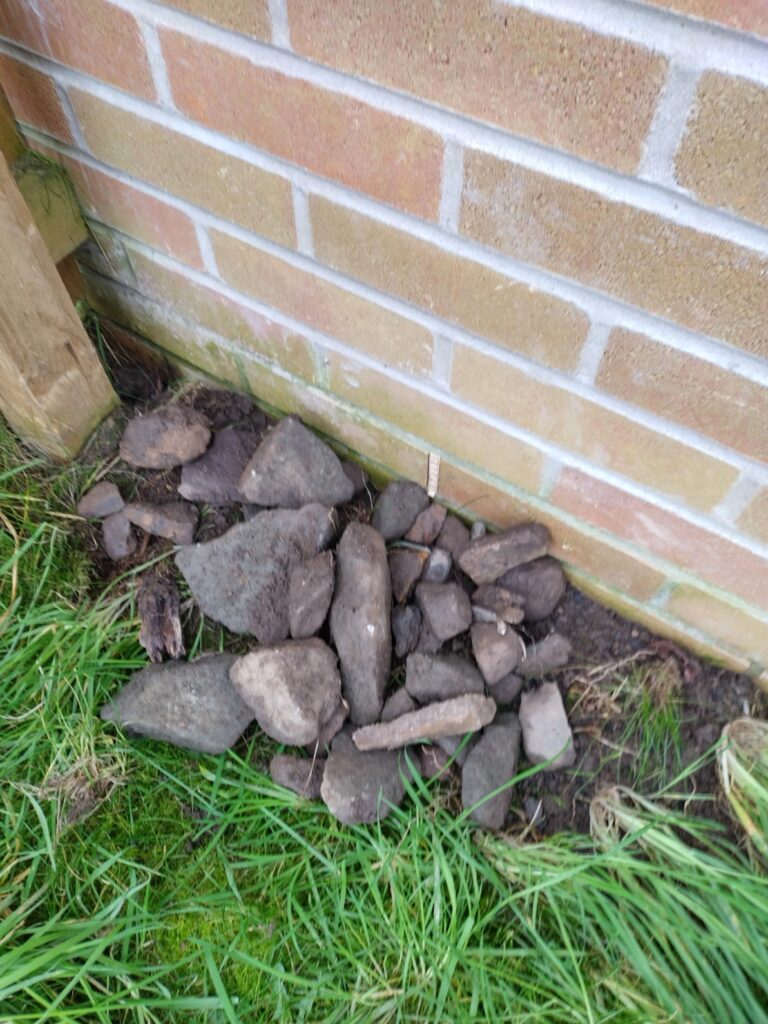
What a difference a year makes. Last year our front garden looked like this:

but this year the witch hazel is out, the first snowdrops – a generous gift from a friend who sent five clumps, including some very special varieties – and wild daffodils are just coming through, and the primroses, rather battered from the heavy rain we’ve been having, are settling down for a long session. Elsewhere, roses, fruit trees and the dwarf willow are in bud, and most of the new plantings have survived the winter, and are showing new growth.
I’m not used to this. In the quieter garden in Stirling, you could guarantee that a lot of plants would sulk, succumb to the wet or take a dislike to the acid soil or the lack of sunlight and give up, but here most things seem to thrive – unless the slugs get them. We have begun the process of putting up the new greenhouse, much hampered by Celtic Connections, which has been marvellous, and the weather, which has not. The seeds are waiting for a bit more consistent warmth, but light is growing by the day, and it won’t be long.
Celtic Connections has been a joyous release – noisy, enthusiastic, a riot of languages, instruments, musical genres, melodies and creativity. Several gigs were not only a delight to listen to, but thought-provoking and inspiring too. The Trio Kali were a member short, because of visa hold-ups, but they performed anyway, with Scottish musicians playing in. There had been a crossover project during the summer, with Scottish and American musicians learning Griot music from Mali, incorporating native American and African influenced styles into Cajun and Appalachian traditions, and ‘closing the circle’ – showing how traditional Scottish music crossed the Atlantic and was enriched by the cultures of African and Indigenous people caught up in the colonial process – an example of acknowledging the history of slavery and oppression through collaboration and cooperation that will stay with me for a long time.
Roisín Remembered was a different example – a fusion of traditional and Classical music that brought together language, poetry and history as well as music. As I go deeper into Seamus Heaney and Eavan Boland, I’m beginning to appreciate that this is really important, and it throws up something quite dysfunctional in our attitude to ‘culture’ – our assumption that culture is elitist, or an optional add-on, unrelated to ‘real life’ is something most other cultures don’t share, and the need for poetry to justify the time and effort we spend on it would be incomprehensible to most people.
The other strand throughout Celtic Connections seems to have been protest. From the roar of support when the missing musician from Trio Kali finally arrived, to the Songs of Sorrow performed by Angeline, reclaiming the stories of black people in the English tradition, to the protest songs by Eliza Carthy and the Unthanks, the political tradition of folk music has been reassuringly obvious.
Celtic Connections comes to an end this weekend, and then gardening, editing and writing will begin in earnest. We are all slowly coming back into the light,
Leave a Reply